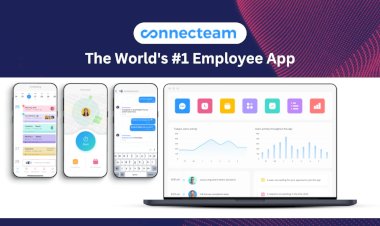IBM Watson Marketing Releases 2019 Marketing Trends Report Focused on Emerging Trends Redefining the Profession in the Shift to AI

Top Drivers Include “the Emotion Economy,” Tech-First Marketers, and AI-Powered Personalization, Supported by New Roles in Data and Agile Marketing
With artificial intelligence (AI) continuing to gain usage among marketing professionals, IBM announced a new report from IBM Watson Marketing identifying a new breed of marketers coming to the forefront. Driven by a growing need to meaningfully structure data to enable actionable, real-time decision making IBM’s 2019 Marketing Trends Report provides practical insights for businesses to stay ahead of the forces driving these changes.
“It’s not often an entire profession experiences a sea change the likes of which has profoundly impacted all facets of marketing, but we are in that moment,” said Sylvia Vaquer, Co-Founder & Chief Creative Officer, SocioFabrica. “This transformation fueled by AI-powered inferential connections provides a rare opportunity to rearchitect the whole ‘marketing house,’ but it’s critical to have practical knowledge to capitalize on it.”
Also Read: HG Data Audience Extends Technographics to Facebook, Adobe, Twitter, and Salesforce Digital Marketing Platforms
The report’s findings provide deep insights into how CMOs and digital agencies are reimagining the marketing function with the following overview giving a blueprint for what it will look like in 2019 and beyond:
- In The Emotion Economy, Purpose Creates Brand Loyalty – More than ever, consumers are more likely to engage with brands that are authentic, meaning the brand holds strong convictions and delivers on them, versus experience alone.
- Marketer 4.0: Emergence of the Tech-Savvy “Martecheter” – Until now the greatest advantages for marketers has been in the order of budget, tools and talent. That model is now inverted, driven by the rapid growth of new skills and customer expectations.
- AI and Machine Learning Make Hyper-Personalization a Reality – The proliferation of data and compartmentalized marketing stacks has squarely put AI and machine learning-based marketing tools at the center of deep personalization. This will change how marketers make decisions and deploy campaigns as AI analyzes and delivers personalized content with massive scale.
- Director of Marketing Data Becomes the Hottest New Role – Growth of “marketing data” roles will continue as they drive human and technology connections across their organization. This will enable artificial intelligence and machine learning-based marketing tools to analyze data and customer behavior, make recommendations and predictions, and become smarter based on the data fed into them.
Also Read: Okta Names Shellye Archambeau to Board of Directors
- Agile Marketing Adoption Accelerates, Driving Marketing Outcomes and Culture – Organizations driven by culture change and agile mindsets will widen their lead having a first-mover advantage, especially where AI-powered marketing technology enables the right set of tools to align and measure the proper objectives and metrics.
- GDPR Actually Helps Marketers Improve Data Hygiene and Customer Trust – Marketers will increasingly focus on improving data hygiene processes, leading to better targeting and higher quality interactions. With similar regulations already in certain parts of the US and the potential for US-wide legislation, marketers will proactively improve privacy, security, and data management as a catalyst for new business models.
- Digital Marketing Agencies Transform into “Consulgencies” – As the rankings of AdAge’s 10 largest agencies was cracked – for the first time ever – by The Big Four consultancies in 2017, it serves as a bellwether for the industry including smaller and mid-sized agencies: “Consultancy” and “agency” capabilities will converge, driven by a need to build out deep expertise in AI, data integration, customer experience analytics, mobile apps, and custom solution development.
- MarTech + AdTech = The Holy Grail of Marketing – Although extensively debated, 2019 will at last be the year marketers lean more into the benefits of programmatic ad spending. By achieving better data connectivity between their martech and adtech stacks they will have real-time understanding of customers and ad spend optimization using AI.
- Customer Centricity Breaks Marketing Silos and Delivers Happiness – Marketing transformations will increasingly focus on creating differentiated customer experiences. This will be supported by more experimentation using contextualized understanding of aggregated customer data across other areas of the organization such as commerce and digital teams.
“As marketers ourselves, we felt it was critical to dissect the industry dynamics that are reshaping the profession to help our peers set a strong vision for their organizations.” said Michael Trapani, Marketing Program Director for IBM Watson marketing. “By understanding the transformative trends – from team structure, to the advent of AI-powered marketing, to heightened expectations for the discipline – the findings in the 2019 Marketing Trends Report will be indispensable for marketers.”
Recommended Read: Salesforce Optimizes Lightning Platform’s Tech Stack for Faster Application Development

 MartechAdministrator
MartechAdministrator 



































